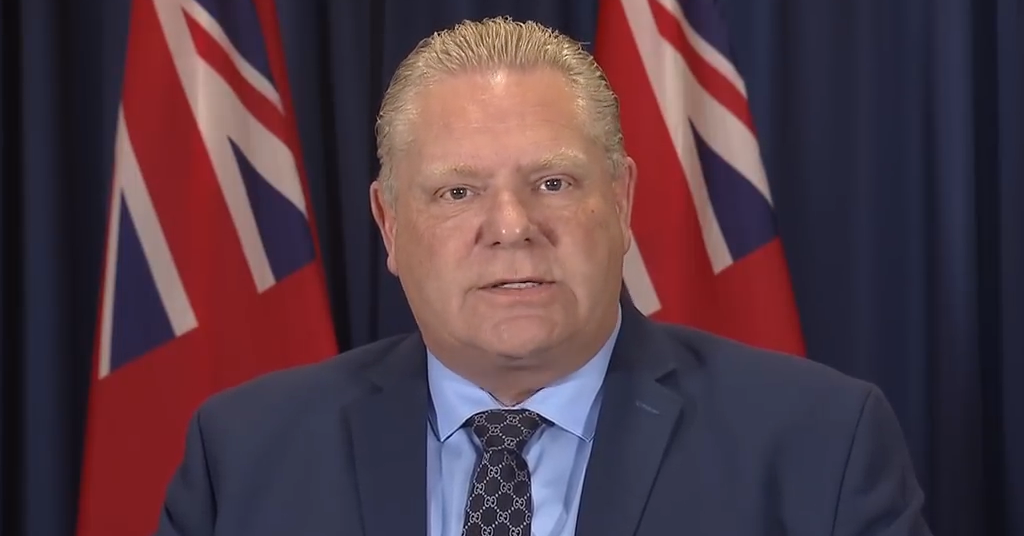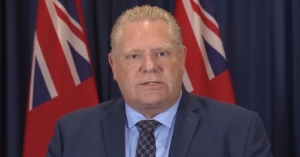
Doug Ford Might Win a Majority Government Even Though He’s On Pace To Lose The Popular Vote
If Ontario wakes up Friday morning to a Doug Ford majority government, thank the First-Past-The-Post electoral system
The 2018 Ontario election will come down to the wire.
History hasn’t yet been written, but most polls show Andrea Horwath’s NDP holds a narrow lead over Doug Ford’s PCs – in a nutshell, it’s going to be “pretty darn close.”
This is so early this AM. Let’s see what it looks like tomorrow with a big sample and impact of other events. Pretty darn close pic.twitter.com/zcEP98u2cw
— Frank Graves (@VoiceOfFranky) June 5, 2018
According to the latest data released by polling firm EKOS, Horwath’s NDP currently have a 1 point lead over Ford’s PCs. Kathleen Wynne’s Liberals are a distant third – Wynne herself conceded the Liberals have no path to victory.
But even if the NDP wins by as much as 3% – as one recent poll aggregator noted – Ford’s PCs could still form a majority government.
You heard that right: Doug Ford could hold 100% of the decision-making power on important files like health and education, making life or death decisions that impact the province’s children and elderly.
What could possibly go wrong?
Unless anti-Ford voters send a united message at the ballot box, Ontario’s First-Past-The-Post system could allow a party with one-quarter of its candidates facing lawsuits, probes and police investigations to form a majority government with as little as one-third of the overall votes.
That’s because First-Past-The-Post has a knack for producing strange outcomes, including situations that see “rule by the minority over the majority.”
Canadian history offers countless examples of strange results produced by our First-Past-The-Post system:
• In 1993, Jean Chretien’s Liberals formed a majority government, winning 60% of seats with only 41% of the popular vote. Meanwhile, the separatist Bloc Québécois became Official Opposition with only 13.5% of the vote, winning more seats than Preston Manning’s Reform Party, which received 18.7% of the vote.
• Joe Clark’s PCs formed a minority government in 1979 despite losing the popular vote to Pierre Trudeau’s Liberals by 4.2% — Clark’s PCs held 48.8% of the seats with only 35.8% of the votes.
• Who else formed majority governments despite losing the popular vote? New Brunswick’s PCs did it in 1974, British Columbia’s NDP did it in 1996 and John Diefenbaker’s PCs did it in 1957 too.
This can be even more striking at the individual riding level.
During the 2015 federal election, 60.65% of of the House of Commons’ 338 seats were won by candidates who received less than half the vote – in a number of cases, MPs even won their seats with less than 30% of the votes in their riding.
Some are already suggesting a majority government led by Ford and could be a “powerful example” of why Canada needs electoral reform.
But is learning that lesson worth four years of chaos and cuts under Doug Ford?
Voters Ontario will cast their ballots on Thursday, June 7th.
Our journalism is powered by readers like you.
We’re an award-winning non-profit news organization that covers topics like social and economic inequality, big business and labour, and right-wing extremism.
Help us build so we can bring to light stories that don’t get the attention they deserve from Canada’s big corporate media outlets.
Donate



